Man who died waiting for ambulance 'let down'
- Published
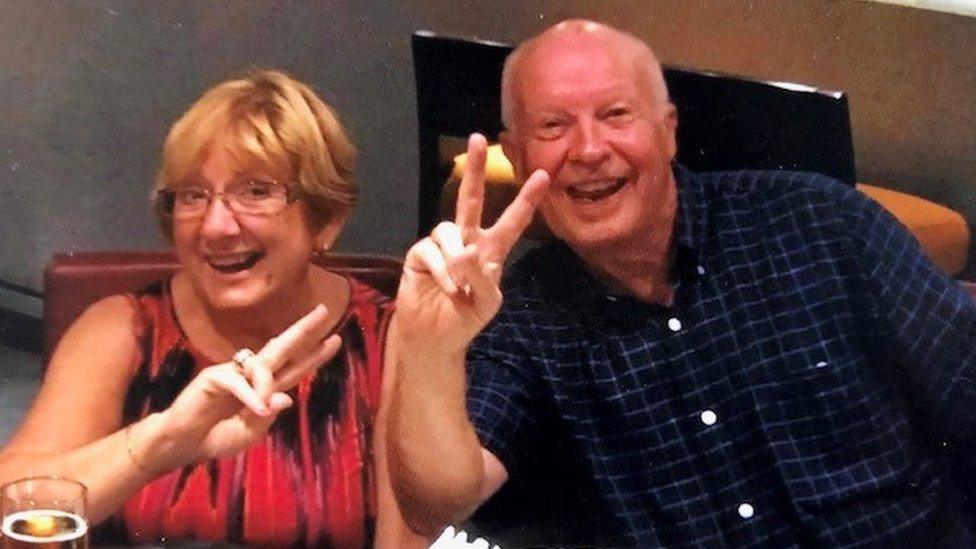
Richard Carpenter, with wife Jeanette, died in the early hours of 1 December
The wife of a man who died while waiting more than five hours for an ambulance said he may have survived if he had received help earlier.
Jeanette Carpenter said her husband Richard, 71, was "let down massively" when he died at their home in December.
Ms Carpenter made an emergency call at 22:30 GMT but an ambulance did not arrive until 04:10, she said.
South Western Ambulance Service has apologised to Ms Carpenter and said it was working to address delays.
Mr Carpenter, from Bromham, Wiltshire, was discharged from hospital on 28 November after open heart surgery but two days later developed severe pain in his back and arm.
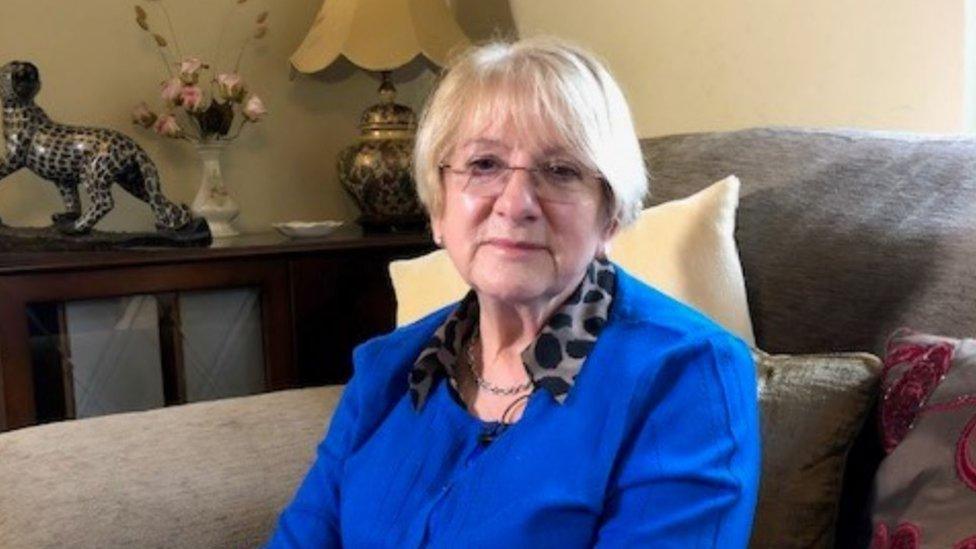
Ms Carpenter said she could see her husband slipping away as they waited for help
His wife called again at 23:10 and told operators she thought he may be having a heart attack and said she was told he would now be a priority.
"He said to me 'where are they, I'm going to die', and I just put my arm around him and said 'they're coming," Ms Carpenter said.
"Just before 04:00 he said I feel faint but I could see he was slipping away from me and I rang them and shouted 'where are you, I'm losing him'.
"I was doing CPR and shouting 'don't leave me.'"
Ms Carpenter said she was later told his death was caused by a haemothorax, but believes he would have stood a better chance of survival if he had got to a hospital.
"I just felt he was let down massively. He needed in those hours some sort of medical help to truly assess him. Something has got to be done to release crews when they get to A&E," she said.
The BBC understands that South Western Ambulance Service is investigating thirteen reported incidents last year of patient harm or death, potentially linked to handover delays outside hospitals.
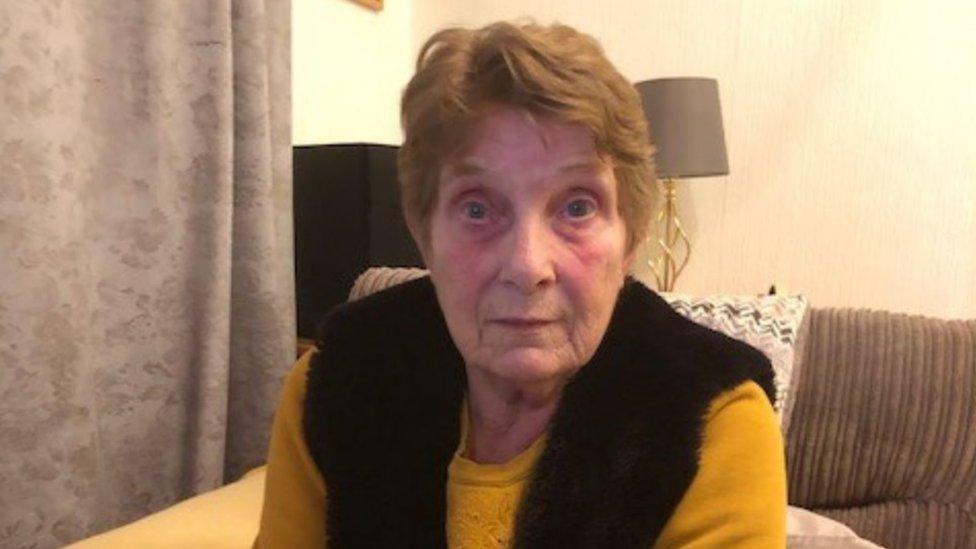
Denise Kelleher's son transported her to hospital after she fell while playing with her dog
Denise Kelleher, from Weston-super-Mare, Somerset, said her son had to take her to hospital when she injured her back on Paignton beach.
"My youngest son phoned for an ambulance and they wouldn't come, he relayed the message saying that it wasn't a life-threatening injury.
"Eventually when I did get to the hospital I had fractured a vertebrae and it was quite a wide break," the 73-year-old said.
South Western Ambulance Service said system pressure meant some patients were waiting longer for an ambulance and one of the reasons for this was the time it took to hand over patients into busy hospitals.
"We are working closely with NHS partners to address these delays, so our crews can get back out on the road for other patients.
"However, even with the additional resources we are making available, the number of ambulances currently waiting for prolonged periods of time at emergency departments inevitably impacts on our ability to respond to patients," a spokesperson said.

Follow BBC West on Facebook, external, Twitter, external and Instagram, external. Send your story ideas to: bristol@bbc.co.uk , external
- Published11 February 2022
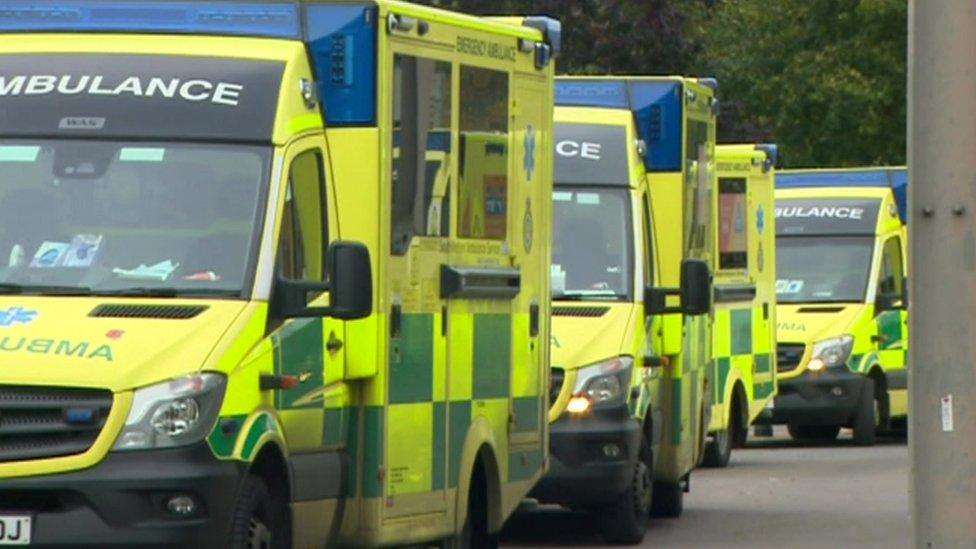
- Published8 January 2021
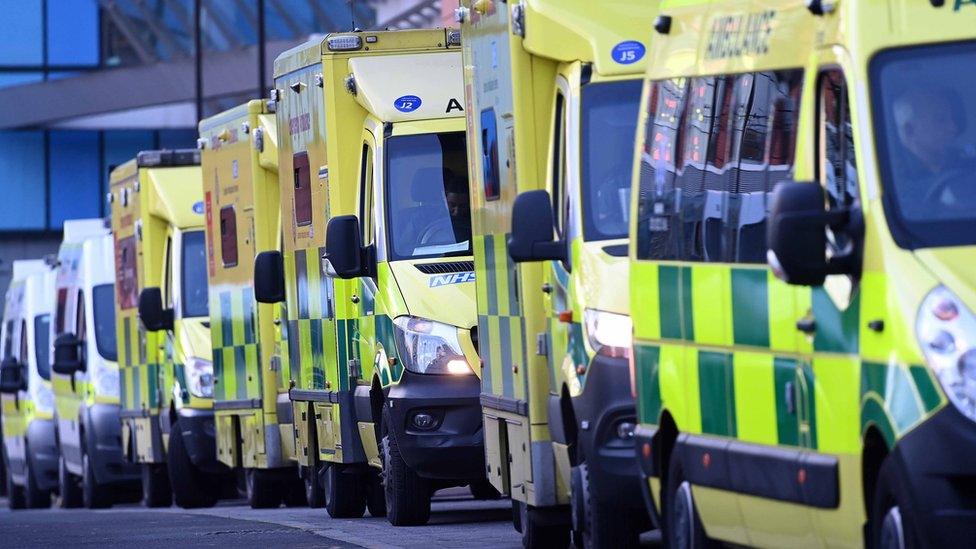
- Published14 January 2022
